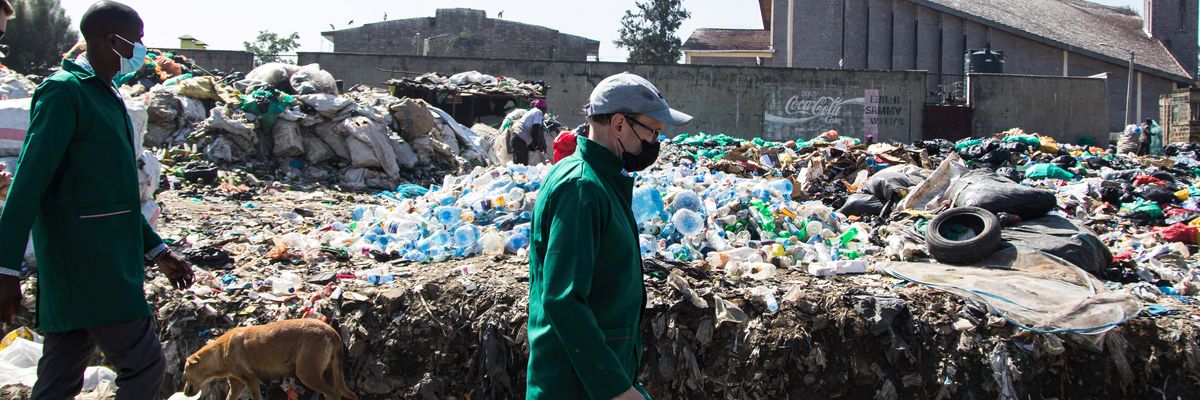United Nations talks over a proposed global plastics treaty ended Sunday with little concrete progress toward an agreement to curb the production, use, and waste of the polluting material after lobbyists for the fossil fuel and petrochemical industries showed up in force to prevent a breakthrough.
Negotiators convened last week in Nairobi, Kenya—a capital city
inundated with plastic waste—with a mandate to make headway toward a legally binding global treaty regulating plastics, the production of which is expected to triple in the next several decades in the absence of government action.
But
AFPreported that "treaty terms were never really addressed, with a small number of oil-producing nations—particularly Iran, Saudi Arabia, and Russia—accused of employing stalling tactics seen at previous negotiation rounds to hinder progress."
Additionally, as the Center for Biological Diversity
noted, the United States' delegation "has not made any firm public commitments to push for measures that curb plastic production." The United States generates the second-most amount of plastic waste per year behind China.
Critical roadblocks to progress are the industries that profit from plastic production, including Big Oil. Nearly all plastic is made from chemicals sourced from fossil fuels, the Center for International Environmental Law (CIEL) has
estimated.
Lobbyists for the fossil fuel and petrochemical sectors—which have been pressuring negotiators to oppose a deal that limits plastics production—made their presence felt during the third round of plastics treaty talks since last year, when nations
agreed to develop a binding plastics treaty by 2024.
According to a CIEL analysis released last week, at least 143 fossil fuel and chemical industry lobbyists registered to attend the latest session of talks in Nairobi, outnumbering the delegations of the 70 smallest countries combined.
"The results this week are no accident," David Azoulay, Program Director for Environmental Health at CIEL,
said Sunday. "Progress on plastics will be impossible if member states do not confront and address the fundamental reality of industry influence in this process."
"We need to find a way forward without oil and gas producers dictating the terms of our survival."
CIEL accused many countries, including the U.S., of attempting to water down calls for an ambitious agreement to rein in plastics pollution and trying to gum up the works with procedural maneuvers. Talks are
set to resume in Ottawa, Canada in April 2024.
More than
68 million tons of plastic are expected to end up in the environment worldwide this year as waste continues to grow, polluting communities, waterways, and oceans—a major threat to critical ecosystems and public health.
Graham Forbes, Greenpeace's head of delegation to the plastics treaty talks, said Sunday that any viable global agreement "must reduce plastic production by at least 75% by 2040."
"Plastic directly harms each of the 8.1 billion people on this fragile planet, but our leaders have effectively chosen to treat petrochemical companies as the only stakeholders worth listening to," said Forbes. "Governments are allowing fossil fuel interests to drive the negotiations towards a treaty that will absolutely, without question, make the plastic problem worse and accelerate runaway climate change."
"We need to find a way forward without oil and gas producers dictating the terms of our survival. We have one year to turn this around, and to ensure that we are celebrating our collective success instead of dooming ourselves to a dark and dangerous future."

